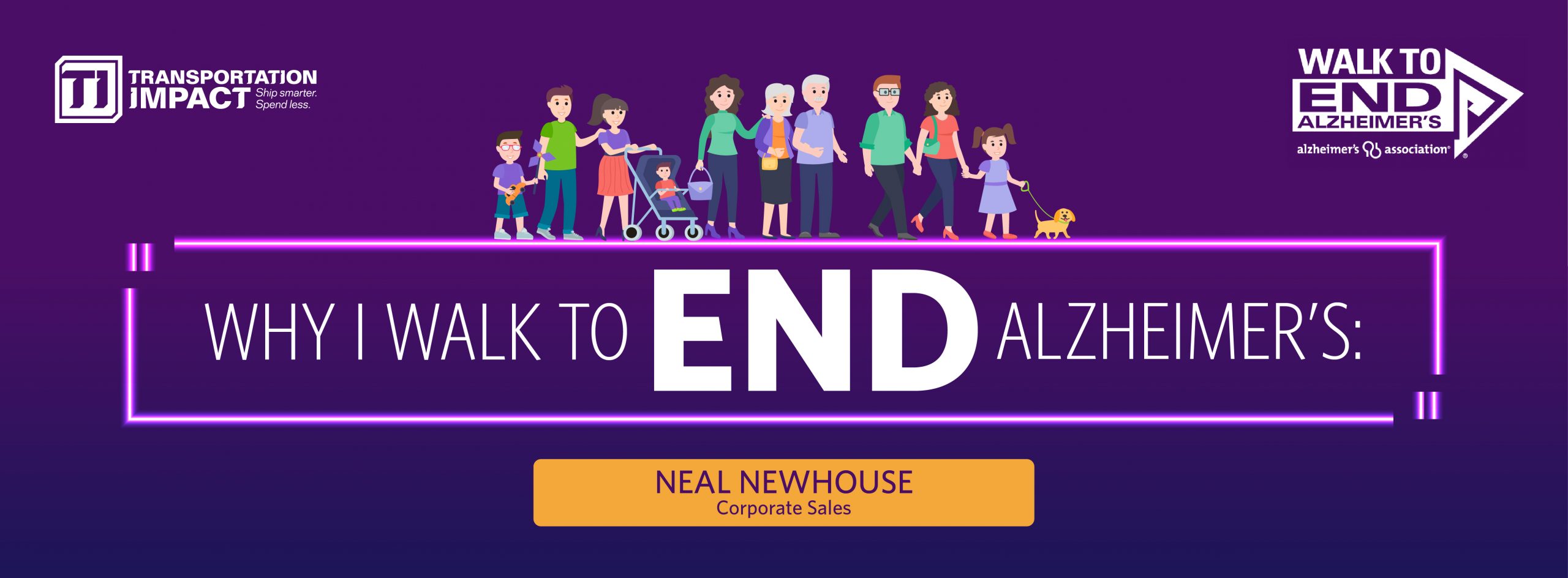Why I Walk to End Alzheimer’s: Berkley Stafford, CEO, Transportation Impact
I participate in the Walk to End Alzheimer’s because of my paternal grandmother, Margaret Stafford. She was a very founded, good Christian lady who raised her family in Wallace, NC. She was a fantastic homemaker, a deacon in the church, and she even owned her own plant nursery for a while. A really good life, she lived.
We grew up with some wonderful memories of her, especially at Thanksgiving and Christmas. She had a profound impact on her children and grandchildren. She was definitely a matriarch, the person the family circled around at reunions and other family gatherings.
My grandfather passed in 1983 when I was very young. My grandmother passed maybe twelve years ago, twenty years after my grandfather. After he died, she lived on twelve acres in Wallace by herself, managing that property, with help from my dad, his siblings, and me at times.
She was a very independent woman who had taken care of a lot of things in her life.
We saw some really early signs of her mind slipping. You start questioning is it you, is she really forgetting? Is this a normal, natural thing as she gets older, or something more?
As time passed on, she was diagnosed with Alzheimer’s, and the family realized she needed more direct care. The siblings made some very good decisions. One of the siblings built a house on the property and moved in to take care of her.
You want to pitch in and take care of the woman who’d always taken care of everybody else.
“It’s an awful disease…”
But eventually the time came when the sibling said, “I don’t know if I can take care of her like she needs to be taken care of. I don’t think I can lift her,” and they had to make the extremely hard decision to get her medical care.
It’s an awful disease because it takes away not only your mental capacity but also your physical, because you forget to do the things to physically take care of yourself.
At this point, she still remembered faces, but it got to the point where she didn’t recognize her own children. She was my dad’s mom. He was the oldest. For him it was a very hurtful and impactful thing, as I’m sure it was for all of them. I just saw a direct impact with him.
When the woman that gave birth to you, that raised you up, doesn’t even recognize you . . .
My father was of the generation following WWII. He was a man’s man, didn’t show his feelings much, but when he did offer a glimpse and spoke about his mother. . . He said, “You know, she didn’t even know who I was.” I could see and hear the pain.
It goes from I know who you are to I don’t have a clue who you are.
The last few years of her life, you have to manage your thoughts. God has taken this woman already, has taken her soul — you have to protect yourself in that way.
Walking For a Cure
Alzheimer’s does not discriminate between good, bad, pretty, ugly; it’s a disease that affects everyone.
If it’s affected our family to that degree, you want to do everything you possibly can to contribute to an effort to one day find a cure so that you don’t ever have to experience this awful disease.
The older you get, the more heightened your senses become to causes like this. Age and experience heighten your senses.
My father, my stepmother, my wife, and I are all taking part in this walk.


